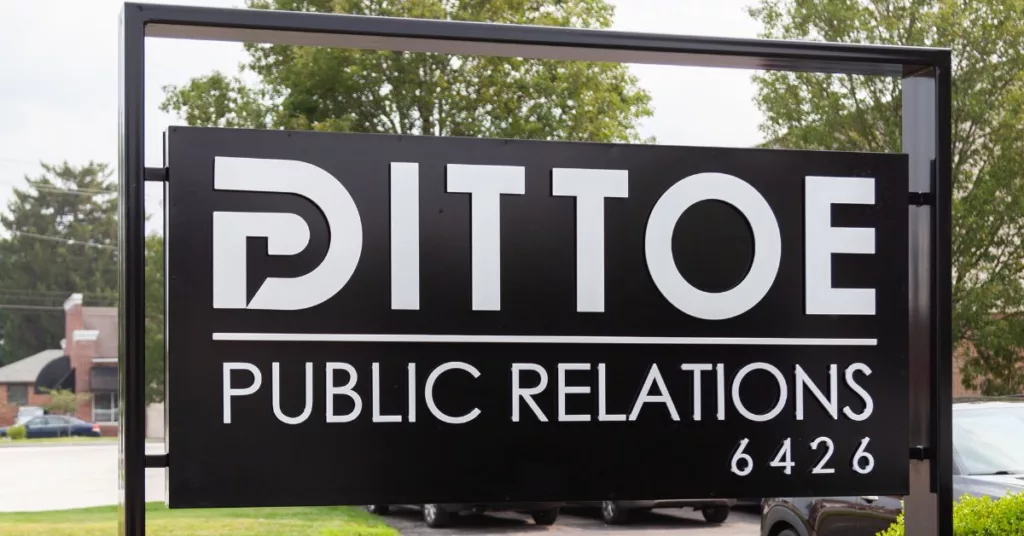Tactical and technical skills are essential to PR roles, but so is tuning up soft skills along the way. This can include being detail-oriented and a self-starter, along with having:
- Strong communication skills (verbal and written).
- Initiative.
- Creativity.
- The ability to juggle multiple projects and deadlines.
- Confidence in your work.
- Problem-solving abilities.
- Strategic and critical thinking.
- Organization.
- A collaborative, “team player” outlook.
Find ways to hone these skills early on through extracurricular and leadership activities, and prepare examples of how you display these characteristics for interviews. Once you get your first PR role (congratulations!), consider applying the below tips to step up your game and make a lasting impression.
1. Be Proactive
Demonstrating proactiveness shows your bosses and colleagues you are serious about your performance and career. This might look like taking a project one step further without asking, following up with ideas that might support a client or project, not always waiting for assignments but instead requesting them, and so forth.
2. Take Notes, Ask Questions
Never leave a meeting or training without taking good notes. While your new colleagues are there to support you, they are not meant to hold your hand the entire way. Write down details of what you’re responsible for so you know what to do next. Additionally, listening to how senior PR team members talk and noticing how they present themselves in meetings – and taking notes on words/phrases/approaches they use – is a great way to emulate some of that in your work.
That said, don’t be afraid to ask questions or follow up to clarify. Asking questions shows your genuine interest in learning and growing in your role. Sometimes, you don’t know what you don’t know until you ask.
3. Over-Communicate
Give project status updates early and often. Alerting your boss well in advance of problems allows time for them to be resolved before turning into a crisis. Along with this, never surprise your boss – always keep them well-informed of project status, good news, problems, and any other relevant information.
4. Ask for Feedback (And Apply It!)
The most effective way to learn and grow is to ask for and apply feedback. Seek constructive criticism and use it to your advantage, always accepting it with grace and an open mind. If you are asked to provide feedback, keep this same mindset.
5. Be Resourceful
Most organizations will come with a backlog of resources as well as a team of veterans ready to support you. Take advantage of the experiences at your fingertips. In addition to any trainings and onboarding resources provided directly to you, find or seek out previous press releases, press lists, pitches, blogs, strategies, etc.
6. Invest in the Experience
Contribute to the culture with a good attitude, and engage with your colleagues. Internship opportunities and entry-level roles are very different from job shadowing because you are there to participate, not observe. Beyond the work, grab lunch with a colleague, set up mentoring chats with leadership – be a sponge and take advantage of your time there, especially if you’re in a remote role.
7. Engage in Strong Communication and Writing
Communication is at the foundation of solid client, colleague and media relationships. As PR pros, we must communicate effectively and often with all different parties. You can be concise but more frequent to ensure your account teams and client contacts are always in the know.
As far as writing, everything we do derives from strong writing – pitches, strategies, content, social, you name it. You are halfway there if you can write well and in many styles.
8. Work With a “Sense of Urgency”
This is a mindset, as we understand not everything is urgent and must be prioritized. However, in PR you must understand how to work quickly and efficiently to always keep things moving. Reply to client, media or partner communications in a timely manner and consider all projects important in their own right. Everything works together, and the opportunity might pass us by if left untouched for too long.
9. Have Confidence
PR moves ultra-fast, so we must be assertive, persistent and eager to challenge ourselves to make bold moves. Show up with the guts and tenacity to get the job done.
10. Lead with Critical Thinking
We are often tasked with problem-solving or needing to adapt to move the needle in the right direction. The ability to think strategically or critically on client topics, tactical execution and more are crucial to success in PR.
As an entry-level professional, you have the unique ability to add an outsider’s perspective. Practice critical thinking by asking questions about items other team members may not be thinking of or may be confusing to the general public. Share ideas based on your experience. Offer to conduct additional research to help spark ideas or solve problems.
11. Present Solutions, Not Problems
Be resourceful, anticipate questions, weigh options and communicate solutions alongside any challenges you need to address. If you experience a roadblock in a project, this may look like coming to your manager with another solution or another idea to move forward still but in a different way. This could also mean coming to them with your thoughts on a next step or response to a reporter and asking them to provide feedback, rather than leaving it wide open for them to instruct you what to do or say.
12. Seek Career Development
Experience directly in PR is the primary goal, but what about skills you can gain in unlikely places? Consider other internship or job experiences, articles you’ve read, social media posts and trends, life experiences you’ve had or hobbies (like yoga) you participate in that may be relevant. What learnings can you apply to your PR role?
Dittoe PR routinely seeks public relations and social media interns and entry-level team members. Check out our blog for our latest hiring call-outs and consider applying.







0 Comments